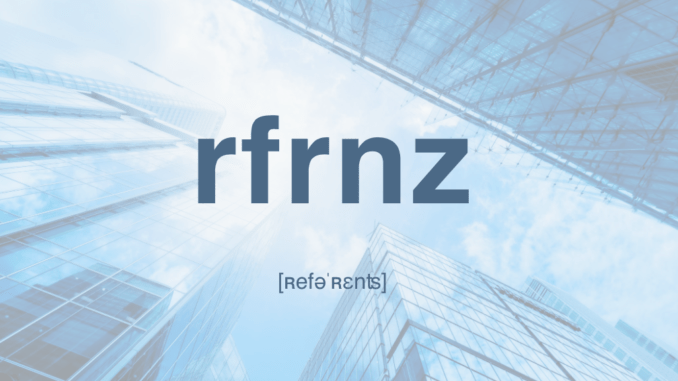
Artificial Lawyer recently caught up with Sven von Alemann, the co-founder and CEO, of Germany’s latest legal AI company, RFRNZ, which has a focus on document review and promises to shake up the European legal AI market.
Germany is the largest economy in Europe and a global leader in engineering, but until recently it only had one established legal AI company, the well-known Leverton, which focuses on doc review in the real estate sector.
Well, now there are two and as von Alemann explains, RFRNZ has plenty of ways in mind that it’s going to be a key part of the legal AI market.
Von Alemann, who is based in Munich and once used to be an IT lawyer at US law firm McDermott Will & Emery, as well as working inhouse at SAP, begins by explaining the core product.
‘RFRNZ offers contract analysis, it extracts clauses, dates and this type of information. It also does risk analysis and can show red flags, such as where content is missing.’

Which then raises a key question: how will RFRNZ compete with such established legal AI companies?
Von Alemann says that while the company’s software is ‘language agnostic’ it does have a unique selling point: RFRNZ will be a ‘native German’ legal AI company. I.e. while others may train their natural language processing (NLP) software to understand German terms, RFRNZ will have German language capability from day one.
That said, the system will also work in English. Von Alemann states that RFRNZ ‘will be flexible’.
‘We will go to market in German, but we don’t want to be just a German company,’ he says and adds that they want to look at Dutch and other languages as well.
This may be a winning idea. After all, Germany is a big economy – the fourth largest in the world – and home to some of the largest law firms and inhouse legal teams in Europe outside of the UK. Surely a significant potential market? And indeed it is, as several of the larger legal AI companies are operating there, besides Leverton.
Another aspect Von Alemann is developing is the ability for a company to set its own standards for how terms and contracts as a whole should be. This creates a ‘corridor’ that when combined with RFRNZ ensures contracts don’t break away from pre-agreed standard terms.
All in all in it’s a coherent AI product, that provides a native German NLP platform, the clause analysis and extraction the market has come to expect from AI companies, but also with risk assessment and ‘red line’ capabilities that inhouse legal teams may find very useful.
So, what next?
Von Alemann says that at present they are in part funded by government grants and have won awards for innovation. He feels confident that they can now move from their current pilot stage to widescale commercial uptake.
‘In a few years this will be a basic tool for every German lawyer,’ Von Alemann states.
That said, Von Alemann says that there is a lot of education to be done in the German market about the use of AI.
‘Lawyers need to know a lot more still,’ he notes. But, he adds that he believes RFRNZ can make a difference and be counted among the growing number of legal AI companies: ‘People will make a commercial decision. Is it reliable? Does it have a good UX?’
Right now RFRNZ has several businesses, including corporates and law firms, that are working with the company. The company will come to market publicly in 2018 and will also be looking at attracting external investment, as well as hiring in more staff to help grow the business.
To conclude, RFRNZ has everything to play for. There is no a priori rule that German lawyers have to use AI systems made by UK, US or other companies. In fact, it’s always been something of a conundrum that one of the world’s great engineering nations only has had one significant legal AI company until now. Good luck to RFRNZ, we look forward to seeing how things go.

1 Trackback / Pingback
Comments are closed.